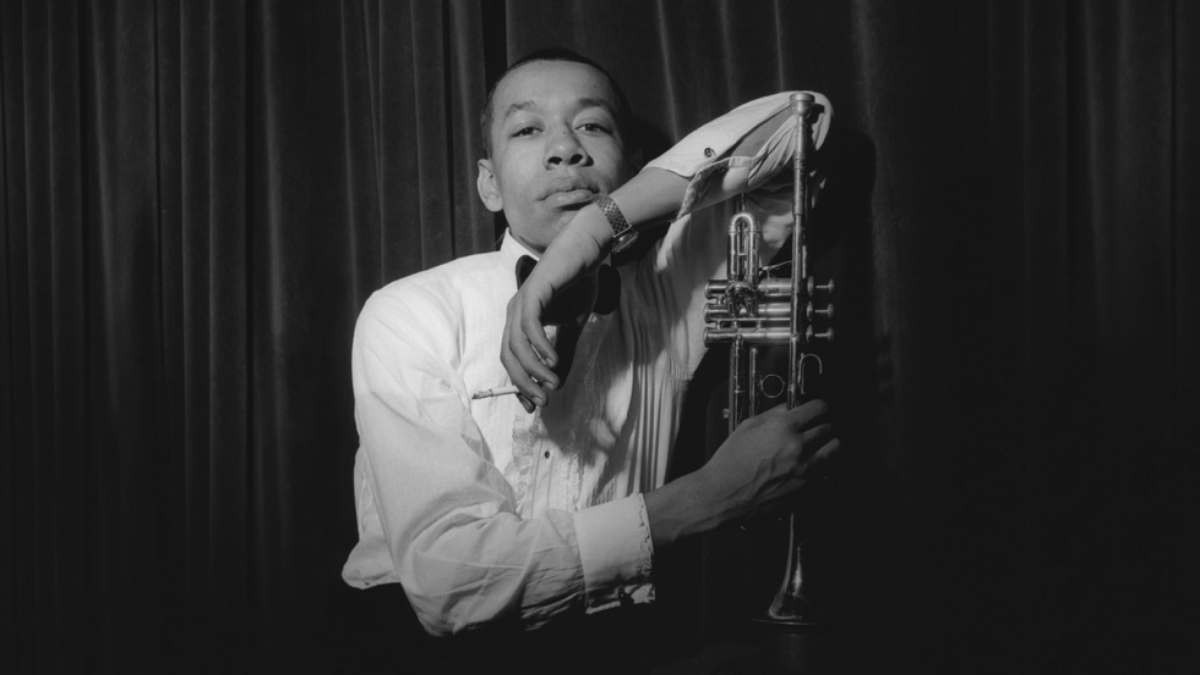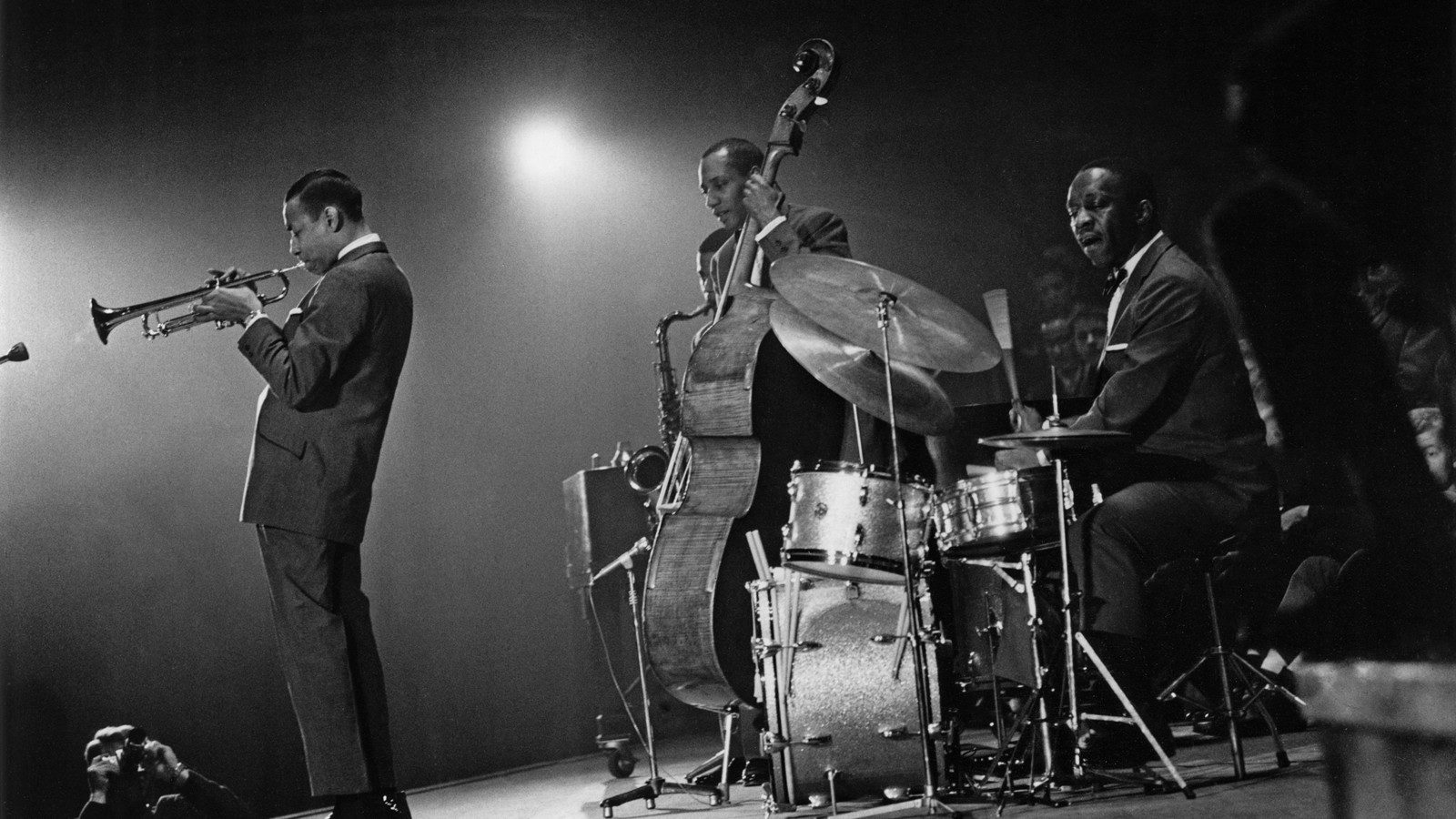Lee Morgan was only a teenager when he exploded onto the bop scene, a cocky but undeniably talented kid ably sharing the stage with Dizzy Gillespie. He played alongside his friend Wayne Shorter in Art Blakey’s legendary Jazz Messengers, basically defining Blue Note’s hard bop sound at the time. He released seminal records under his own name like The Sidewinder, Search for the New Land, and The Rumproller before getting caught up with heroin, vanishing into addiction, and triumphantly returning clean and full of energy.
And at 33, Morgan was shot dead on stage at a sawdust-floored Lower East Side saloon.
It’s a hell of a story, and I Called Him Morgan tells it concisely, through archival footage, still pictures, talking-head interviews, and the one big coup around which it structures the narrative: a late-in-life audio testimonial from the woman who shot him — his long-time common-law wife and manager, Helen Morgan.

I Called Him Morgan announces its dual focus in the title, which is a quote from Helen. (She didn’t care for the name ‘Lee’.) The film wisely splits the telling in two, tracking the early lives and careers of both the doomed trumpeter and the woman who would bring him back from the dead only to kill him.
For one thing, this helps I Called Him Morgan avoid the standard archival doc pitfall of only featuring colleagues saying things like, “Boy, he was good” over records you could check out on YouTube, while also rounding the story out with crucial context. And, even if it’s in this tragic context, try and name another cinematic treatment of jazz that gave any space to the women in these stars’ lives? I can’t do it. (When Helen tells of meeting Miles Davis — “that nasty man” — who told her, “You got a smart mouth. I don’t mess with bitches with smart mouths,” we remember how these things usually go.)
Not that the film lacks for head-nodding footage of Morgan in action. Far from it. We get early performances with Gillespie and some great footage of the Jazz Messengers tearing it up, testimony to his talent and underscoring what was lost for no particularly good reason at all.

By interweaving the audio of Helen, recorded by her adult education teacher with a penchant for jazz a month before she died, with depictions and recollections of earlier times, I Called Him Morgan feels like an elegy for an entire era. The hardscrabble Helen, who grew up in the South and fled for New York as soon as she could, emerges as a sympathetic voice — if not necessarily earning forgiveness, at least deserving of understanding.
It’s difficult to listen to her frank account of their tumultuous life together — almost single-handedly rescuing Morgan from the gutter, supporting him, getting him back to work on his art — and not feel at least some amount of empathy when he more or less turns his back on her. Nor is hard to see why he would. Things are complicated in this world.
Some of the best moments come by way of his friend and collaborator Wayne Shorter, who sits down with the documentarians along with many others. (Cinematographer Bradford Young is credited with some of the later footage, and it’s not hard to guess which ones.) Shorter speaks of his admiration for Morgan, and also his horror at the toll Morgan’s drug use was visibly taking. When he stares at one of Francis Wolff‘s iconic pictures of the two of them, you can feel the sadness in his loss of words. He points out what’s behind his expression: a growing feeling that his friend is lost. Like me, you might end up wanting an entire documentary about the subjects of these images excavating their own fraught histories.
For those who know the story, there will not be a tremendous amount to learn here, except about Helen’s childhood. For those who do not, I Called Him Morgan may prove a mind-blowing, often artful dive into a true-crime story, with a hard bop score.
Still, even it doesn’t exactly break new ground, the film is absolutely solid, depicting the times and places, the people and relationships, with skill and nuance. It tells a story that needs to be told. Jazz fans will surely seek it out for the archival footage alone. Anyone interested in tales of glory, redemption, and tragedy should join them.

